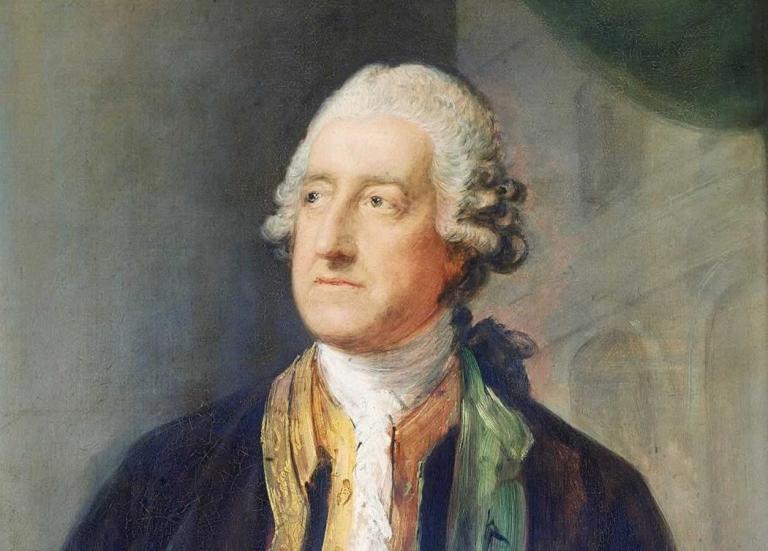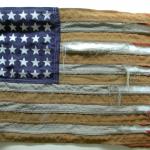The Earl of Sandwich was responsible both for your sandwich and for the soda that you drink with your sandwich. He was also a factor in the American colonies gaining their independence from Great Britain. And he exemplifies an important point about the doctrine of vocation.
I came across a fascinating article from the BBC by William Park entitled How Processed Food Became So Unhealthy. (Although this should be read in conjunction with another BBC article by Jessica Brown, Which Processed Foods Are Better Than Natural?)
In the course of the historical survey of food preservation, Park brings up John Montagu, 4th Earl of Sandwich (1718-1792). His main claim to fame is that he really did invent the food item named after him, the sandwich. It seems he was an inveterate gambler who didn’t like to stop playing cards to eat. He instructed a servant to just bring him some meat between two pieces of bread so that he could hold his meal in one hand and hold his cards in the other. Though others may have done the same before him–this is not a difficult concept–other gamblers began ordering the “Sandwich” meal and the concept caught on, taking on both simple and elaborate forms, to this very day.
But the reason the Earl’s name comes up in an article on food preservation is that, in one of his many government offices, he came to serve as the First Lord of the Admiralty. He had to deal with a problem in the Navy, as well as the vast merchant fleet that was servicing the far-flung British Empire. An ocean voyage took months, and over this amount of time, the supply of water, stored in barrels, for ship crews would become stagnant, foul-tasting, and unhealthy to drink. Might there be a way to preserve water to maintain its freshness and palatability?
The Earl of Sandwich had the presence of mind to consult with the great pioneering chemist Joseph Priestly. He found a way to infuse water with carbon dioxide, thus inventing carbonated water. Priestly thought the fizziness would preserve the water and that it might even prevent scurvy. Since carbonated water is slightly acidic, it did preserve drinking water for a little while longer, though not much. And it didn’t do anything for scurvy, that severe vitamin-C deficiency that, it would be discovered around this time, could be prevented by the juice of lemons or limes. The sailors still needed their grog ration–alcoholic spirits, usually rum, mixed with the water, which did preserve it–to remain hydrated.
So the big idea didn’t work, but carbonated water began to be manufactured for a niche market. One use was in “tonics.” Not just sailors but English colonists, merchants, and functionaries in the tropical regions of the British Empire–India, Africa, South America, and the Caribbean islands–had to worry about catching Malaria. It was discovered that quinine, made from the bark of a South African tree, could both cure the disease, which was transmitted by mosquitoes, and prevent infection. The problem was that quinine is exceedingly bitter. Quinine was dissolved into carbonated water and then sweeteners were added, which helped, but the tonic still tasted pretty bad. But then someone discovered that adding gin to the quinine tonic made for a very pleasant and complex flavor combination. Add in the juice of a lime, your regimen for preventing scurvy, and you had a quite delicious and refreshing drink. And thus, the Gin and Tonic was born, the mixed drink that helped the British survive their Empire and that remains a favorite libation today.
Then other tonics were developed, using a base of carbonated water. Extracts of coca leaves and the kola nut provided a pick-me-up with Coca-Cola. (Later, the coca leaves, which could also be refined into cocaine, were dropped from the recipe.) Pepsi was billed as a digestive aid, alluding to the kola nut and the enzyme “pepsin,” though it contained neither of those ingredients. Dr. Pepper, like other soft drinks, was developed by a pharmacy and sold with the claim that it “aids digestion and restores vim, vigor, and vitality.” All of these drinks were sold at Drug Stores. The medical claims for them were almost always bogus–though they contained and continue to contain caffeine, which gives the drinker a little “pep”–but now they have become universal beverages. Often enjoyed with a sandwich.
Why do I bring this up? I think the connection of the Earl of Sandwich to both the sandwich and to soft drinks is interesting historically. But there is also a lesson here about vocation.
John Montagu, the 4th Earl of Sandwich, held a number of important government offices. He served in Parliament. He was an officer in the army. He became a diplomat, helping to negotiate important treaties and serving as the ambassador to the Dutch Republic. He served three stints in the Admiralty. He became Secretary of State. He was Postmaster General. And yet, it is said of him, “Seldom has any man held so many offices and accomplished so little.”
The fact is, the Earl of Sandwich was not very good at any of his many prominent offices. That includes those of his family life, which was a mess. And in his third stint as Lord of the Admiralty, he was in charge of the British fleet during the American Revolutionary War. His bungling that task–by not assigning enough naval vessels to the Americas and keeping most of the navy at home in fear of a French invasion–is widely considered to have helped the American colonies gain their independence–another impact of the Earl of Sandwich and something else we Americans can thank him for!
And yet, despite his incompetence at his various vocations, the Earl of Sandwich had an enormous, though completely unintended influence on the world!
This should be an encouragement to us all. We don’t necessarily have to be good at our vocations–as desirable as that might be–in order for them to have an important impact on our neighbors, though we might never know what that impact has been. And sometimes it’s our weakness and our failures that can lead to our greatest contributions.
So, this weekend as we celebrate our nation’s independence from Great Britain with sandwiches and carbonated beverages, lift a glass to the Earl of Sandwich!
Illustration: John Montagu, 4th Earl of Sandwich, by Thomas Gainsborough [detail]- The original uploader was Hugh Manatee at English Wikipedia., Public Domain, https://commons.wikimedia.org/w/index.php?curid=629907












